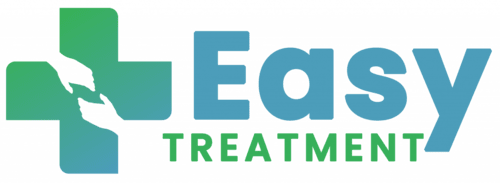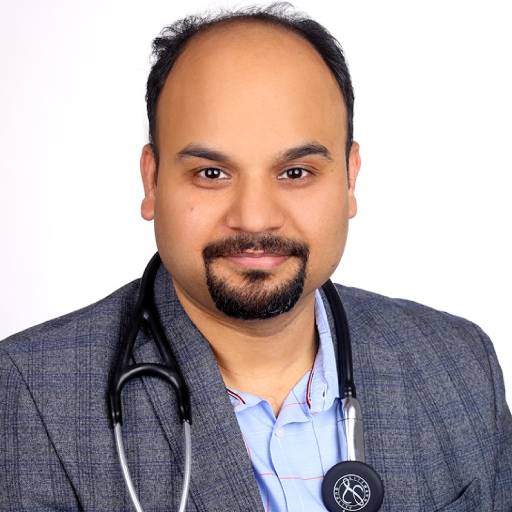Delve into the complexities of Achalasia Cardia with this comprehensive guide, which explores the condition, laparoscopic surgery, and treatment options in detail. From demystifying the symptoms to discussing the latest advancements in medical interventions, this article offers valuable insights for a general readership seeking a deep understanding of this condition and its management.
The ABCs of Achalasia Cardia
Achalasia Cardia is a rare disorder of the esophagus that makes it difficult for food and liquid to pass into the stomach due to the failure of the lower esophageal sphincter (LES) to relax properly. The LES is a muscular ring at the junction of the esophagus and the stomach, and its function is to open and allow food and liquid to pass into the stomach. When the LES fails to relax, it creates a functional obstruction, leading to a backup of food and liquid in the esophagus. This can result in symptoms such as difficulty swallowing, regurgitation of undigested food, chest pain, and weight loss. The exact cause of Achalasia Cardia is not fully understood, but it is believed to be related to the degeneration of the nerves in the esophagus, leading to the loss of peristalsis (the coordinated muscular contractions that propel food through the digestive tract) and the failure of the LES to relax. Additionally, genetic factors, autoimmune reactions, and viral infections have been suggested as potential contributing factors. Overall, the failure of the LES to relax properly is the primary reason behind the development of Achalasia Cardia, leading to the characteristic difficulty in passing food and liquid into the stomach.
Identifying the Symptoms of Achalasia Cardia
Achalasia Cardia is a condition that can make it hard to swallow and can cause food to come back up. It can also make your chest hurt, make you lose weight, and give you heartburn. Sometimes, it can make you cough and get sick because food and liquid go into your lungs. Treatment for achalasia cardia typically involves interventions to help relax or open the lower esophageal sphincter, such as balloon dilation or surgery. Medications can also be prescribed to help relax the muscles in the esophagus and reduce symptoms. In some cases, dietary and lifestyle changes, such as eating smaller meals and avoiding certain trigger foods, can also help manage symptoms. It is important to consult with a healthcare professional for an accurate diagnosis and personalized treatment plan.
Causes of Achalasia Cardia
The exact cause of Achalasia Cardia is unknown, but it is believed to be related to the degeneration of the nerves in the esophagus, leading to impaired muscle relaxation and loss of peristalsis. Some studies suggest that genetics may play a role in the development of Achalasia Cardia, as it can run in families. Other potential risk factors include autoimmune conditions, viral infections, and certain neurological disorders. The condition is relatively rare, affecting about 1 in 100,000 individuals, and it can occur at any age, although it is most commonly diagnosed between the ages of 25 and 60.
How can Achalasia Cardia be diagnosed?

Achalasia Cardia is diagnosed through a series of tests, such as X-rays, a barium swallow, and an endoscopy. These tests help doctors see if there is a blockage in the esophagus, which is a tube in your body that helps food go from your mouth to your stomach. If the initial tests suggest Achalasia Cardia, further tests may be conducted to confirm the diagnosis, such as esophageal manometry and pH monitoring. Esophageal manometry measures the muscle contractions in the esophagus, while pH monitoring measures the acidity levels in the esophagus. These tests can help differentiate Achalasia Cardia from other conditions with similar symptoms, such as gastroesophageal reflux disease (GERD). Once the diagnosis is confirmed, treatment options can be discussed with a healthcare provider to manage the symptoms and improve quality of life.
What are the possible complications of achalasia?
Achalasia is a condition that makes it hard for food and liquid to pass into the stomach. Some possible complications of achalasia include difficulty swallowing, regurgitation of food, and chest pain. If left untreated, it can lead to weight loss and malnutrition.
Treatment for achalasia typically involves procedures to help relax or open the lower esophageal sphincter, such as pneumatic dilation or surgical myotomy. Medications to help relax the esophagus may also be prescribed. In some cases, dietary changes, such as eating smaller meals and avoiding certain foods that may trigger symptoms, can help manage the condition. It’s important for individuals with achalasia to work closely with their healthcare provider to determine the best treatment plan for their specific needs.
Exploring Laparoscopic Surgery for Achalasia Cardia
What is Laparoscopic Surgery?
Laparoscopic surgery is a surgical procedure where doctors use special tools and a tiny camera to help them fix a problem in the muscles of the esophagus. The doctors make small cuts in the belly to reach the esophagus and make the muscles work better. This helps people who have trouble swallowing food. This method has various advantages over standard open surgery, including less incisions, less pain, and a faster recovery.
Role of Laparoscopic Surgery in Treating Achalasia Cardia
Laparoscopic surgery plays a crucial role in the treatment of Achalasia Cardia. One of the most common procedures is called Heller’s cardiomyotomy, in which the surgeon cuts the muscles at the lower end of the esophagus to allow food and liquid to pass into the stomach more easily.
Advantages of Laparoscopic Surgery for Achalasia Cardia
Laparoscopic surgery for Achalasia Cardia offers several advantages, including shorter hospital stays, quicker recovery, reduced postoperative pain, and minimal scarring. This approach has revolutionised the treatment of Achalasia Cardia, offering patients a less invasive and more effective solution.
Treatment Options for Achalasia Cardia

NonSurgical Treatment Options
Non-surgical treatment options for Achalasia Cardia include pneumatic dilation, in which a balloon is used to stretch the LES, and botulinum toxin injection, which helps relax the muscles of the LES. However, these treatments may offer only temporary relief and may need to be repeated over time.For successful non-surgical treatment of Achalasia Cardia in India, renowned Dr. A Rakesh Kumar, skilled in diagnosing and treating a wide range of gastrointestinal disorders, including conditions related to the liver, pancreas, and gallbladder, is known in Hyderabad for her expertise in performing POEM (Peroral Endoscopic Myotomy) procedures for Achalasia Cardia and providing comprehensive care for patients with this condition.
Surgical Treatment Options
Surgical Treatment Options for Achalasia” encompasses various procedures aimed at relieving symptoms and improving esophageal function in individuals with achalasia. Surgical interventions are typically considered when other treatments, such as medication or pneumatic dilation, are ineffective or not suitable for the patient.
One common surgical approach is called a Heller myotomy, where the surgeon cuts the muscles of the lower esophageal sphincter (LES) to help relax and widen the passage into the stomach. This procedure can be performed through traditional open surgery or minimally invasive techniques, such as laparoscopy or robotic-assisted surgery.
Lifestyle and Home Remedies for Managing Achalasia Cardia
Patients with Achalasia Cardia can also manage their symptoms through lifestyle and home remedies, such as eating smaller, more frequent meals, avoiding trigger foods, and adopting an upright posture during and after meals to aid digestion.
Latest Advancements in the Management of Achalasia Cardia
Emerging Treatments for Achalasia Cardia
Recent advancements in the management of Achalasia Cardia include the use of advanced endoscopic techniques, such as per-oral endoscopic myotomy (POEM), which offers a less invasive alternative to traditional surgery.
Research and Clinical Trials for Achalasia Cardia
Ongoing research and clinical trials are focused on developing new treatment modalities, improving diagnostic techniques, and enhancing the overall management of Achalasia Cardia.
Future Prospects for the Treatment of Achalasia Cardia
The future of Achalasia Cardia treatment looks promising, with continued advancements in minimally invasive surgical techniques, endoscopic interventions, and the development of targeted therapies tailored to individual patient needs.
In conclusion, Achalasia Cardia is a complex condition that requires a multidisciplinary approach for effective management. With the advent of laparoscopic surgery and the continuous evolution of treatment options, patients with Achalasia Cardia can look forward to improved outcomes and a better quality of life.
Best Achalasia Cardia Treatment in Hyderabad
The best Achalasia-Cardia treatment in Hyderabad can be found at several reputable hospitals and medical centres in the city. Some of the top hospitals known for their expertise in treating Achalasia-Cardia include Yashoda Hospitals, and PACE Hospitals. These hospitals are equipped with state-of-the-art facilities and experienced medical professionals who specialise in the diagnosis and treatment of Achalasia-Cardia. Patients can expect to receive comprehensive care, including accurate diagnosis, personalised treatment plans, and post-treatment follow-up. The treatment options available at these hospitals may include minimally invasive procedures such as laparoscopic Heller’s myotomy, pneumatic dilation, and Botox injections, as well as traditional surgical interventions. Additionally, the hospitals in Hyderabad are known for their commitment to patient care and comfort, providing a supportive environment for individuals undergoing treatment for Achalasia-Cardia.
Treatments of MBBS, DM – Gastroenterology, MD – General Medicine, Gastroenterologist and 22 Years Experience Overall (11 years as specialist)at Dr. A Rakesh Kumar Rated 4 /5 based on 83% customer review.
Achalasia cardia is a rare disorder that affects the esophagus, causing difficulty in swallowing, regurgitation, and chest pain. At Dr. A Rakesh Kumar’s clinic, the treatment options for achalasia cardia may include pneumatic dilation, Heller myotomy, and peroral endoscopic myotomy (POEM). Pneumatic dilation involves using a balloon to stretch the lower esophageal sphincter, while Heller myotomy is a surgical procedure to cut the muscles at the lower end of the esophagus. POEM is a minimally invasive procedure that involves creating a tunnel in the esophagus to access the inner muscle layers and then cutting them to relieve the swallowing difficulties. The choice of treatment depends on the individual patient’s condition and preferences, and it is important to consult with Dr. A Rakesh Kumar to determine the most suitable approach.
These are the stories from someone who visited a doctor and shared their experience.
Patient Testimonial 1
I am so grateful for the care I received at Yasoda Hospital on behalf of Easy Treatment Healthcare. The medical team was incredibly knowledgeable and attentive, and they made me feel at ease throughout my treatment. The facility was clean and well-maintained, and the staff was always friendly and supportive. I would highly recommend Easy Treatment Healthcare to anyone in need of medical care.
Supriya Ramesh, Age 48
Patient Testimonial 2
After the initial examination, the doctor recommended a course of treatment and explained the potential side effects. I appreciated the thorough explanation and felt confident in following the treatment plan. The doctor also provided me with some additional resources and information to support my recovery, which I found very helpful. Overall, my experience at the doctor’s office was positive and I left feeling reassured and well-informed about my health.
I would highly recommend Easy Treatment Healthcare Pvt Ltd to anyone in need of top-notch medical care. The support team was knowledgeable, attentive, and compassionate throughout my treatment. From the initial consultation to the follow-up appointments, I felt supported and well-informed every step of the way. I was impressed by the efficiency of the entire process.
Mohan Lal, Age 35
CONTACT US
We are glad to assist you. To contact us, please call our customer service hotline at +91 9000001766. Our team is available to assist you during our business hours. We strive to provide excellent customer service and look forward to addressing any inquiries or concerns you may have.

